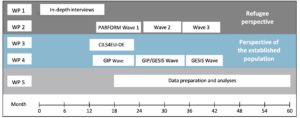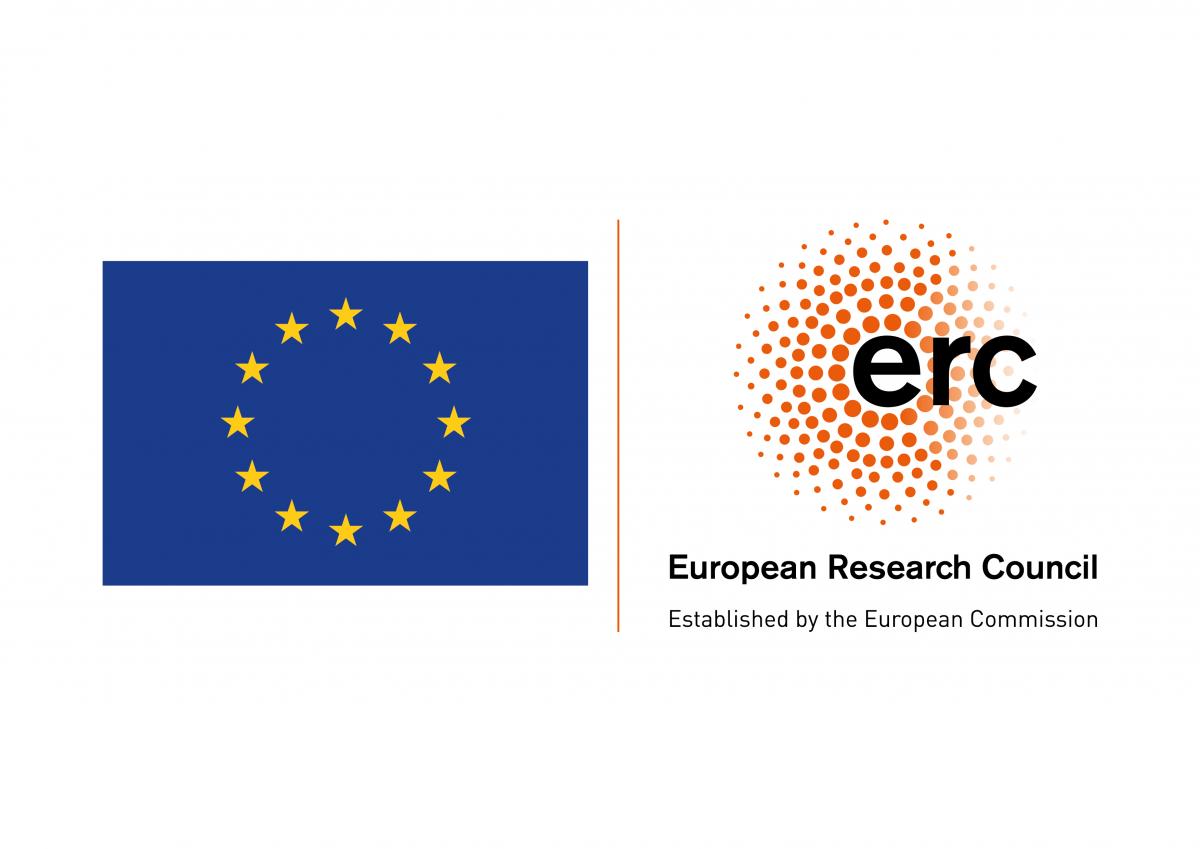Parform Objectives
1. Description
Understand how young male refugee migrants cope with the challenges of partnership formation in light of the unfavourable demographic situation for them in Germany, and how their mating patterns compare to those observed within the established German population of roughly the same age.
2. Theory-building
Revisit the existing theoretical framework by integrating online dating into the set of opportunity structures and conceptualizing partnership formation as a two-sided, interactive process.
3. Data infrastructure
Design and conduct a three-wave panel survey on recent male refugee migrants from Syria and Afghanistan in Germany. Complement these data by additional information on the established German population, generated by implementing specially tailored instruments in the established representative German-wide surveys.
4. Analyses
Confront theories with the newly obtained data to answer a number of innovative research questions while applying advanced methods of network, panel and multi-level data analyses.
Parform Work Plan

WP1: In-depth interviews with newcomers from Syria and Afghanistan about their partner search strategies
We carry out semi-structured interviews with up to 20 young men of Syrian and Afghan origin, as well as ca. five native-born or long-term residents of Germany (with or without a migration background), in order to get an in-depth insight on their strategies of partnership formation.
WP2: A three-wave panel survey of refugee migrants from Syria and Afghanistan
We collect three waves of panel data among men aged 18–30 from Syria and Afghanistan who arrived in Germany between 2014 and 2018 unmarried. The sample of 1,000 individuals from each origin group will be created from the population registers of a number of German cities. The first wave will be collected face to face. The second and third waves will be carried out using computer-assisted web interviewing, as a mobile device app or an online survey.
WP3: Attitudes to partnerships with newly arrived refugee migrants and patterns of partnership formation among young Germans
We ask the CILS4EU respondents questions regarding their partnership formation strategies, paying particular attention to their online dating activities. We compare partnership formation processes among majority native-born German youth, immigrant offspring and first-generation immigrants from the CILS4EU-DE sample to that of recently arrived refugees.
WP4: Online factorial survey among the German population in the framework of GESIS panel
We examine the extent to which the established German population—both with and without a migration background—is open to partnerships with newly arrived male refugees. To this end we plan to introduce a vignette instrument capturing partnership preferences of the German population (18-70) into the GESIS panel.
WP5: Confronting theory with the data – analysing patterns of partnership formation
We first compare partnership patterns among recent refugees with those of established members of German society. Second, we examine the role of the internet and friendship networks in partner selection among recent immigrants. Finally, we simulate patterns of partnership formation among recent refugee migrants with specific characteristics under various scenarios of partner preferences of the established German population.
